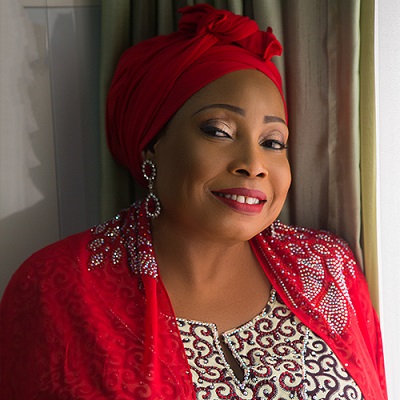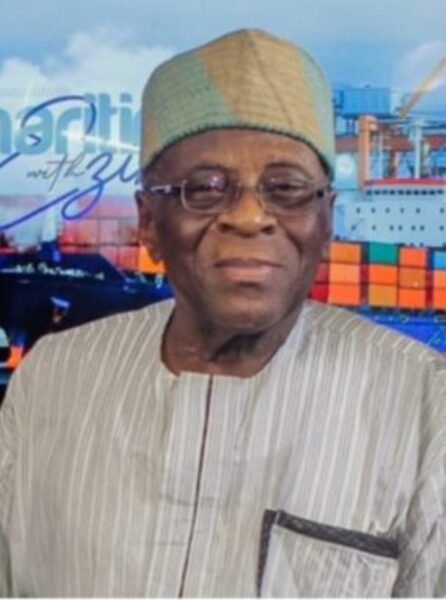Rupert Murdoch Set To Retire From Fox, News Corporation Boards

*The move leaves his son Lachlan as the sole executive in charge of the global media empire.
Rupert Murdoch is retiring from the Fox and News Corporation boards, the companies announced Thursday morning, making his son Lachlan the sole executive in charge of the powerful global media empire he built from a small local newspaper concern in Australia 70 years ago.
The elder Mr. Murdoch will become chairman emeritus of the two businesses, the companies said.
Mr. Murdoch, 92, had shown no intention of stepping down or even slowing down — including after he named Lachlan as the operating heir to his business empire in 2019, when he sold his vast entertainment holdings to the Walt Disney Company.
Though the move places the Murdoch family companies more firmly under Lachlan’s control, a bruising succession battle may still loom. Upon Rupert Murdoch’s death, his four adult children would have to work out his ultimate successor among themselves, based on a plan he put into place nearly two decades ago.
Mr. Murdoch has made his wishes clear regardless in elevating Lachlan. And, even now, he will continue to offer counsel in his emeritus role, Lachlan said in a company release. In his own statement to employees, the elder Mr. Murdoch indicated that he would do so actively and regularly.
“We have every reason to be optimistic about the coming years — I certainly am, and plan to be here to participate in them,” he wrote. “I will be watching our broadcasts with a critical eye, reading our newspapers and websites and books with much interest, and reaching out to you with thoughts, ideas, and advice.”
Rupert Murdoch, 92, had shown no intention of stepping down or slowing down — including after he named his son Lachlan, right, as the operating heir to his business empire in 2019.Credit…David Paul Morris/Bloomberg
The announcement was nonetheless potentially epochal, signaling at least the formal end to an active career during which Mr. Murdoch built the most important and politically influential media empire on the planet. His companies, infused with a brand of right-wing populism, have amassed the power to shape, and at times make or break, presidents and prime ministers.
He built that empire across three continents, helping to shift norms and tastes in journalism, politics and popular culture throughout the English-speaking world. Exhibiting what critics and admirers equally described as a pirate’s sensibility, he acted with a willingness to move fast and break things — before that became trendy.
Those tactics also drew legal trouble and a steady stream of condemnation from opponents and even onetime allies, especially after stars of his Fox News Channel embraced former President Donald J. Trump’s 2020 election lies — leading to a $787.5 million legal settlement with Dominion Voting, the company at the center of so much of it. Other, related lawsuits are still pending, including one seeking $2.7 billion in damages.
Lachlan Murdoch, though striking a different image than his father — with tattoos and trademark leather boots — has so far represented continuity for the family companies. Though he has taken a more aggressive stance in entering the streaming sphere — acquiring the ad-supported entertainment streaming service Tubi in 2020 which has since gained in value — he has maintained the positioning of the companies’ more stridently conservative outlets.
He was in his current role overseeing Fox News in 2020 and had been initially supportive of the network’s far-right firebrand Tucker Carlson. He was also credited inside the company with forcing Mr. Carlson from the Fox lineup after the Dominion settlement in the spring. But there is no indication the younger Mr. Murdoch will change the network’s overall course and hard-right approach in the lead-up to another presidential campaign that may well have Mr. Trump atop the Republican ticket.
Until now, Lachlan Murdoch has not stepped forward in any aggressive fashion to be the defining face of the company the way his father had been, and the political and media worlds will be watching closely to see if he takes the retirement as an opportunity to do so.
There was no precipitating event for the elder Mr. Murdoch’s announcement, beyond the obvious fact that even the healthiest 92-year-old is in his twilight years.
And it has long been said among those who know Mr. Murdoch that he would prefer to retire while still viewed as sharp and active — he was on the Fox lot this week — than as a greatly diminished figure.
But with his announced retirement, Mr. Murdoch was also further solidifying the company beneath his chosen business heir ahead of a looming, family battle for control of the empire after Mr. Murdoch’s eventual death.
Under the terms of the trust that controls the family’s stake in the empire, each of Mr. Murdoch’s four eldest children — Lachlan Murdoch, Elisabeth Murdoch, James Murdoch and Prudence Murdoch — will have an equal vote on its future following his death; until then, Mr. Murdoch holds the controlling vote.
Rupert Murdoch’s retirement in a sense formalizes the arrangement he had already put in place after the Disney sale, which made Lachlan the day-to-day executive in charge of the two companies at the heart of the Murdoch empire — Fox Corporation and News Corporation.
To wit, the younger Murdoch’s titles — executive chairman and chief executive — remain effectively unchanged, barring the small tweak of losing the “co-” he once shared with his father, who maintained similar titles until Thursday morning.
Mr. Murdoch’s move to anoint Lachlan as his chosen successor was followed by a lasting rift with his younger son James, who is more left-leaning than his father and brother and had been an advocate, for instance, of a less strident and rock-ribbed version of Fox News.
He and his wife, Kathryn, have criticized climate change denialism at the family-controlled outlets. James appeared to be at least partly referencing Fox News when he linked the Jan. 6, 2021, attack on the U.S. Capitol to “outlets that propagate lies to their audience,” in an interview with The Financial Times, blaming them for unleashing “insidious and uncontrollable forces.”
People close to James Murdoch, now a major tech and media investor, have over the years raised the possibility that he would seek to rally his two sisters to vote with him to wrest control of the company away from Lachlan.
But it is unclear whether he would have the votes or ultimately the will or the interest to force that sort of bruising family fight. Elisabeth, now the executive chair of the Sister entertainment studio, and Prudence have kept their views of the family company private.
If the elder Mr. Murdoch were to have his way, such a decision would be a long way off. He has often noted that his mother, Dame Elisabeth Murdoch, died just shy of her 104th birthday. As he wrote to employees Thursday, “Our companies are in robust health, as am I.”
And the term “semi retirement” was being used inside the Fox Corporation offices on Thursday indicating that it might be premature to write Mr. Murdoch’s corporate obituary just yet.
In his statement to employees on Thursday Mr. Murdoch wrote, “The battle for the freedom of speech and, ultimately, the freedom of thought, has never been more intense.” While Lachlan was “absolutely committed to the cause” Mr. Murdoch wrote, he planed to remain “involved every day in the contest of ideas.”
He had a message, too, for his longtime nemeses in the so-called “MSM,” or mainstream media, writing that “most of the media” was “in cahoots’’ with “elites” who have “open contempt for those who are not members of their rarefied class.”
It was not all that different from the language he used when he first arrived in the United States in the early 1970s, criticizing the “intellectual showmanship” of the big name journalists who, in his view, had lost touch in all the self-celebration of that heady, post-Watergate era. Offering an alternative, he pronounced, “We’re here to give the public what they want.”
All followed from that: His first foray into the U.S. newspaper market, which reinvigorated the slashing, populist style of old. His creation of Fox Broadcasting, which broke the three-network oligopolistic hold on prime-time television and introduced the edgy sort of programming that is now the staple of streaming. The birth of Fox News, which became No. 1 in cable news by giving a very specific public what it wanted — those conservative-leaning Americans who long felt ignored by a traditional journalism world they viewed as biased against them.
Yet it also helped lead to an illegal hacking operation in Britain, to give British tabloid readers what they wanted — juicy inside details about the famous and the newsworthy — as well as the 2020 election coverage that prompted the Dominion suit, to satisfy Trump fans who made up so much of the Fox audience.
It will for now fall to Lachlan to keep that public satisfied amid the new demands and challenges of the streaming era, and for a more fragmented media sphere — leaving a new chapter to be written by a Murdoch not named Rupert.








